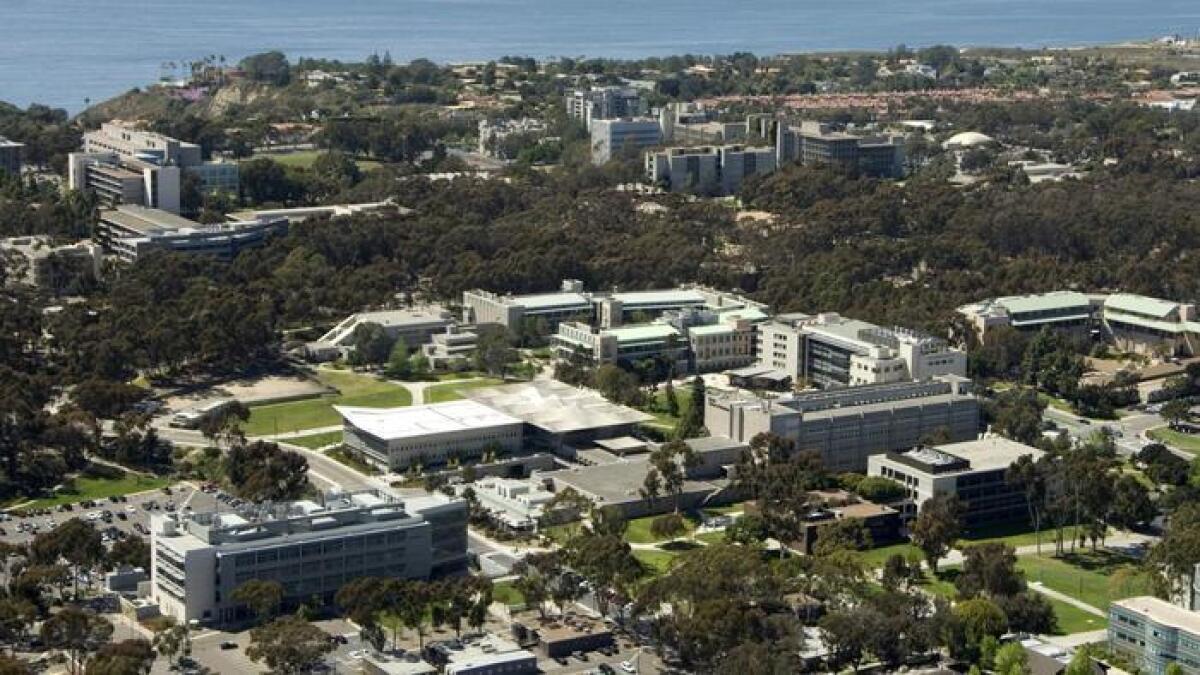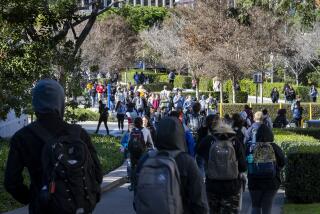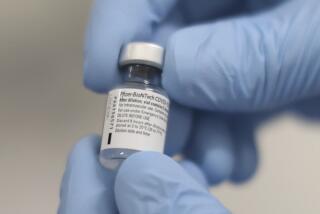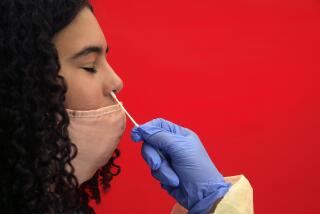UC San Diego to mass test students for the novel coronavirus

SAN DIEGO — UC San Diego Chancellor Pradeep Khosla said Tuesday the university was going to begin mass testing students for the novel coronavirus as a major step toward resuming on-campus courses in the fall.
The school’s experimental “Return to Learn” program will begin May 11, when UC San Diego starts giving self-administered tests to 5,000 students who are living in campus housing.
If the program works, campus officials plan to test about 65,000 students, faculty and staff on a monthly basis.
UC San Diego will become the first campus in the University of California system and one of the first in the U.S. to broadly test students for the coronavirus — an undertaking it is well-suited to do. It operates UC San Diego Health, which includes two major hospitals and many clinics, all of which are tied to one of the largest medical research programs in the U.S.
“This effort will leverage the ingenuity and expertise of our clinicians, molecular biologists, epidemiologists, bioinformaticians and others to work toward a tailored map of where the virus is, and where it isn’t,” Khosla said in a statement.
“We expect these efforts to help put us in the best possible position to minimize virus outbreaks and implement new interventions as needed, should we resume in-person activities this fall.”
Like other schools, UC San Diego was forced to shift to online classes in March and April as the novel coronavirus spread. The shift has been unpopular with many students, some of whom say that in-person classes offer a much richer learning experience. Students also don’t like paying full tuition for online classes.
The change is causing financial devastation.
Khosla said last week that COVID-19 has cost UC San Diego $150 million so far, and that it is likely to cost an additional $200 million to $300 million by the end of the summer.
Some of the losses stem from the refunds the university had to issue to students who lived in campus housing. At the start of the fall quarter, about 15,000 students lived on campus — a figure that Khosla says could drop below 13,000 this fall due to social distancing rules.
The school — which has been experiencing unprecedented growth for more than a decade — also could lose enrollment due to the public’s fear of the virus. UC San Diego began the fall quarter with nearly 39,000 students, a record.
The Return to Learn program is meant to address that anxiety.
UC San Diego officials said Tuesday that 5,000 undergraduate and graduate residential students will be given nasal swab-based coronavirus tests initially, and that it will check housing wastewater and surface collections for signs of the virus.
Students “will go to one of several designated sites on campus to pick up a clean nasal swab in a specimen collection container,” the university said in a statement. “Using a downloaded barcode-reader app on a smartphone, the participant will scan the unique barcode on the container, linking their cellphone number to the specimen and generating a time stamp.
“The participant will then swab the inside of their own nose, drop the swab in the container and leave it in a collection box to be picked up by program coordinators. The swabs will be tested for the novel coronavirus, SARS-CoV-2, at the Center for Advanced Laboratory Medicine at UC San Diego Health.”
The university expects to produce test results within roughly 24 hours. Campuswide testing could begin in early September if the program works.
If a person tests positive, the student will be notified and referred to a public health team that will determine whether the participant has been in close contact with other people, UC San Diego said. Any infected students who are shedding the virus will be given dedicated campus housing where they can self-isolate until they’re no longer infectious.
Robbin writes for the San Diego Union-Tribune.
More to Read
Updates
9:56 a.m. May 6, 2020: This story has been updated to clarify how UCSD will handle residential students who test positive for the novel coronavirus.
Sign up for Essential California
The most important California stories and recommendations in your inbox every morning.
You may occasionally receive promotional content from the Los Angeles Times.











